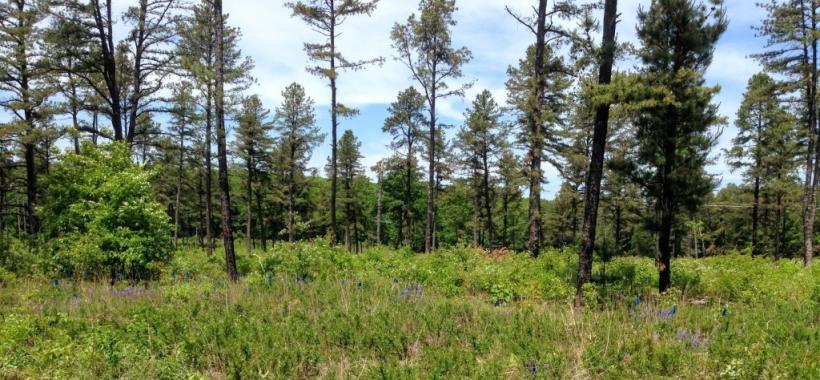Lake Pleasant Road
Montague
MA

Mass Wildlife is holding a series of Thursday afternoon Wildlife Habitat Site Walks around the state this fall to show how woodlands can be managed to provide suitable habitat for different types of wildlife. At each walk, habitat specialists will explain the habitat needs for different species and how the habitat restoration project at that location is designed to meet those needs.
A Pine Barrens habitat site walk will be held on September 24th at the Montague Plains Wildlife Management Area on Lake Pleasant Road in Montague. The walk will begin at 4 pm.
Over the past 20 years, MassWildlife has conducted a number of habitat management projects at Montague Plains to restore this globally rare habitat. Thanks to ongoing habitat management practices like tree cutting, mowing, and prescribed fire, Montague Plains now presents a unique opportunity for professional researchers, citizen scientists, volunteers, and the general public to experience imperiled habitats and the wildlife that live there.
Native bees are important pollinators, and both the number of bee species and the number of individual bees have increased in response to habitat management activities at Montague Plains. More bee species have been found at Montague Plains than at any other site across the Commonwealth. Butterflies and moths on the Massachusetts Endangered Species list have also responded positively to habitat management at the Plains, as have declining songbirds and native game birds like ruffed grouse and American woodcock.
Creating new areas of shrubland habitat with tree harvests at Montague Plains allows for young birds to colonize and breed because the thick shrub cover provides both protection from predators and a thriving, protein-rich insect community to feed on. Important species that have thrived on the Plains include prairie warblers, whip-poor-wills, eastern towhees, and ruffed grouse. Whip-poor-wills readily nest in open-canopy managed areas compared to closed-canopy unmanaged areas
Participants on this site walk should dress for the weather and wear sturdy shoes for walking.
Participants must wear face masks at all times and keep at least 6 feet away from other attendees.